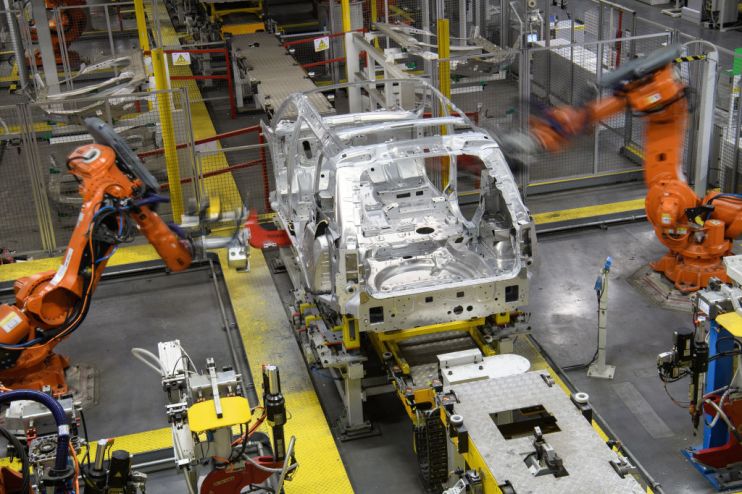UK can still be gateway to Europe for car giants after Brexit, says auto boss

The UK can still be the gateway to Europe for foreign carmakers despite the challenges of leaving the EU, the head of the country’s biggest auto trade body has said.
Mike Hawes, the chief executive of the Society of Motor Manufacturers and Traders (SMMT) said that the UK would still be able to compete with rivals in the trading bloc after Brexit.
“The fundamentals of the industry are still strong. We still have a highly flexible, highly skilled workforce. We still have access to that massive European market tariff-free.
“We need to sweat our assets as best we can and make sure that we’ve got ourselves in the best position to reassert and reaffirm what we have to offer.
“It’s up to the industry, it’s up to manufacturers, and it’s up to the government.”
With a Brexit deal concluded, Hawes added that the first thing for the industry to do this year was to get negotiations over investment into the UK sector back on the table.
Over the last four years, new investment into the country has dried up as firms awaited the result of the long-running trade talks.
Despite his bullish outlook, Hawes acknowledged that the industry would face substantial challenges on the way.
Although securing a Brexit deal was a “massive relief”, he said that it was “no substitute” for the benefits the sector had enjoyed inside the trading bloc.
Before the Open newsletter: Start your day with the City View podcast and key market data
And despite the avoidance of tariffs, a number of other trade barriers – such as a lack of mutual recognition of models in both the UK and EU, the possibility of regulatory divergence, and the potential for customs disruptions – had the potential to hurt the sector.
Hawes’ comments came despite a year in which the coronavirus pandemic sent UK new car sales crashing 29.4 per cent, to 1.6m models.
That makes it the worst year for car sales since 1992, while the decline is the largest, on a year-by-year basis, since 1943, the height of the Second World War.
The decline cost the industry around £2bn, while the Treasury missed out on £1.9bn in VAT receipts through lost sales.
Although sales were depressed for most of the year, it was during the spring’s lockdown that the damage was really done, Hawes added.
“We lost about half a million units in March, April, and May, and never really recovered from that”, he said.
Although the new national lockdown, set to last for at least a month and a half, is a concern, Hawes added that the fact that customers can still buy cars via click and collect would offset some of the declines.
Despite the gloom, however, there was one particular bright spot that Hawes was keen to emphasise. For the first time, sales of plug-in carriers – either fully electric or plug-in hybrids – made up 10 per cent of all sales.
By 2030, the sale of new diesel and petrol cars will be banned in the UK, which Hawes acknowledged would be a considerable challenge.
“We’ve now got to go from one in 10, to 10 out of 10 in the space of nine years, and that’s the challenge for the industry. But the uptake is accelerating rapidly”.
Sector needs new industrial strategy to hit climate targets
In order to hit the 2030 target and to remain a player in the global market, Hawes said the government needed to rollout a new industrial strategy to boost the sector.
Part of this, he added, should focus on ensuring that the UK can establish a national battery development capability to fuel the switch to electric vehicles.
Based on current investment intentions, the UK should have 15 gigawatt gigafactory capacity by 2024, enough to produce 250,000 BEVs a year, with companies such as Britishvolt leading the way.
But by 2040, the UK will need 120 gigawatts of battery capacity for the industry, the SMMT estimates.
Alongside hitting its climate goals, developing such a capability could be crucial for avoiding Rule of Origins tariffs on UK-built cars later in the decade.
From 2027, the EU will only allow cars with a maximum of 40 per cent of non-domestic content into the bloc tariff-free. If the UK can develop such a capability, Hawes said, it will go a long way to hitting this, as well as making the country a more attractive investment location.
Along with developing the supply chain, Hawes said that the country would need a “massive investment” of around £16bn into its infrastructure – much of which would need to be spent on charging infrastructure.